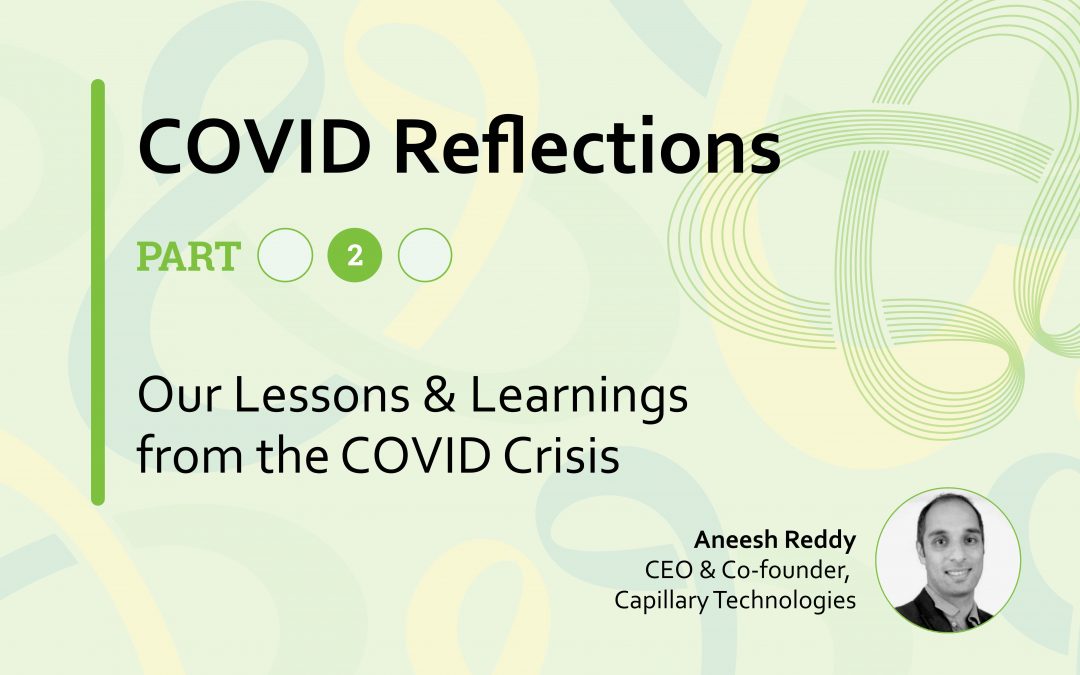- Design industry shaping loyalty programs
- Integrate easily and go live quicker
- Deliver hyper-personalized consumer experiences
Blue Rewards from Al Futtaim Group Shares Loyalty Success Stories and Evolution. Watch Podcast >
Capillary Announces 2nd Annual Captivate 2025 Summit: Transforming Loyalty Management with New AI Tech Read more >

While the pandemic has overstayed its welcome by now, the evolving consumer behaviour is here to stay. Breaking free from the work-from-home during the week and compensating for the lost time in shopping malls through revenge shopping, the dynamics is definitely shaking up the sleepy retail markets.
Clearly, the pandemic accelerated the online shopping trend. In India, it is forecasted that the ecommerce market will grow up to 25-30% annually in 5 years to reach up to $140 billion by FY26. In the same report by Bain & Company Inc., it is mentioned that this growth would be especially evident in Tier-2 Indian cities, accounting for four of every five consumers.
Early this year, when Aneesh Reddy (Co-Founder & CEO) conversed with Ashish Dikshit (MD, Aditya Birla Fashion and Retail) of the year 2021; these post-COVID trends were confirmed. Acknowledging that 2020 is a Black Swan event that brands did not financially or strategically plan for, Mr. Dikshit also shared several tips that would help Indian fashion retailers gear up for what lies ahead. Here are the top 5 picks from their conversation:
Will ecommerce eat up offline retail? Ashish says this is an unavoidable question of the year for all the brands. While the downfall of brick and mortar is pretty steep, there has been a democratic and universal shift to ecommerce. Ecommerce is fundamentally creating a new channel, and instead of seeing the medium as a threat, companies should see it as a way to expand their distribution like they have never done before.
Ashish was quite optimistic that the big fat Indian wedding would be back to its glory soon. Weddings are exuberant occasions that play a big role in the Indian fashion retail. With further economic growth in the country, the financial migration of lower income to middle income is coming soon in the next decade. These consumers will move from basic essentials to products and service of expression, marking an exciting time for the retail industry.
Typically, brands start out by producing something that they excel at, and hence customers see the value of the product. But over a period of time, brands have understood that the focus needs to shift from the product to the consumer’s occasions, consumption patterns and habits. Therefore, a whole spectrum of clothing arises – from strict formal, to smart formal. This will move to relaxed formals and to smart casuals, and so on. Brands need to watch out for these changes in how people want to dress. Ashish elaborates this as he says, “In my time, we could go to an evening get-together and an office in the same clothes. This started to change. What you wore to a club, what you wore for lunch on a Sunday, what you wore during an important meeting and what you wore on a regular working day, are all different. As the stratification of occasions and wardrobe started to happen, we also continued to evolve the brand.”
Start-ups are always known to bring their unique ability to bring technology to the table. Among the various ways that data can be used, start-ups can address the tediously long lead time in the fashion industry while creating new outfits. Ashish echoed this thought, “It takes us 9 months to put out a product that goes through designers, supply chain, sourcing, manufacturing and distribution. And then it takes less than 30 seconds for a person to walk in and say ‘No, I don’t like this collection.” Consumer behaviour definitely rules the market.
Ashish further adds that no businesses can survive, if franchises are not successful. Offline stores are now being used to drive fulfillment and are converted into a place of deeper engagement. For example, stores are connecting with customers on video calls to help them shop remotely. In this new default, we will be seeing a lot of change in engagement metrics, where stores and franchises are trying to differentiate and make a mark in their location. Ashish advises retailers not to let go of franchises as their relationship will help grow the business and open more stores.
The fireside chat has even more insights on how your fashion brand can get retail ready in this changing world, tune in to the full webinar here.

September 16, 2021 | 4 Min Read
While the pandemic has overstayed its welcome by now, the ev

June 23, 2020 | 4 Min Read
In my previous post, I spoke about how being cash positive c